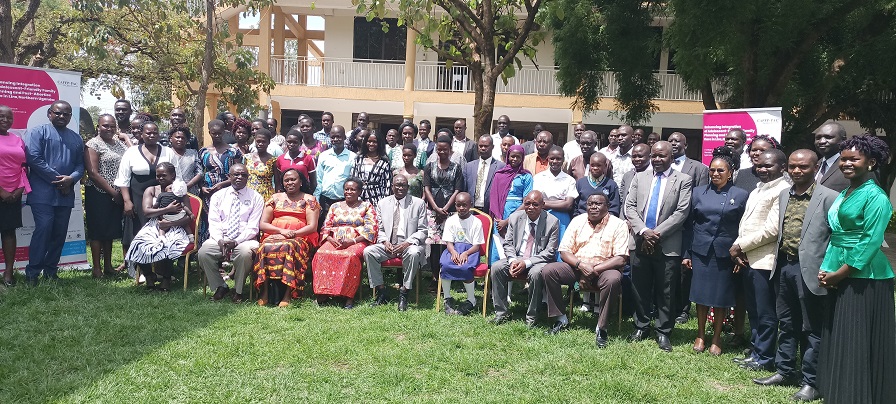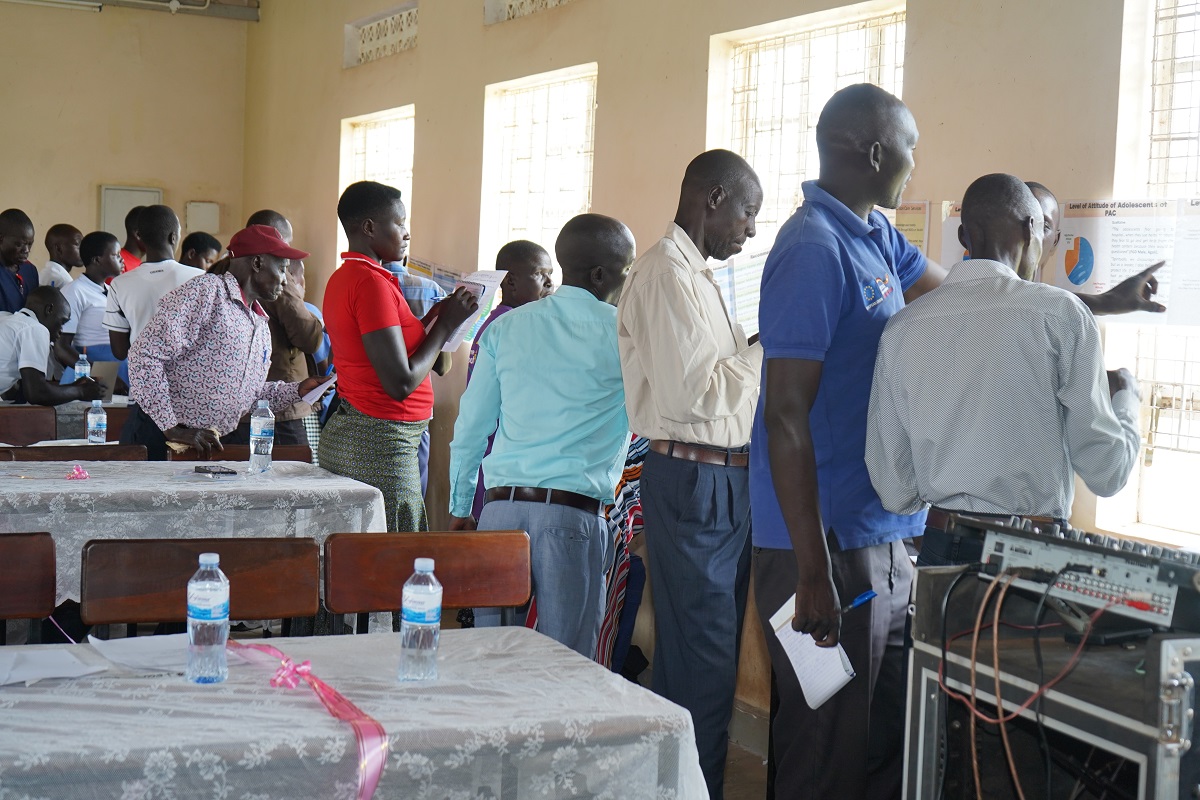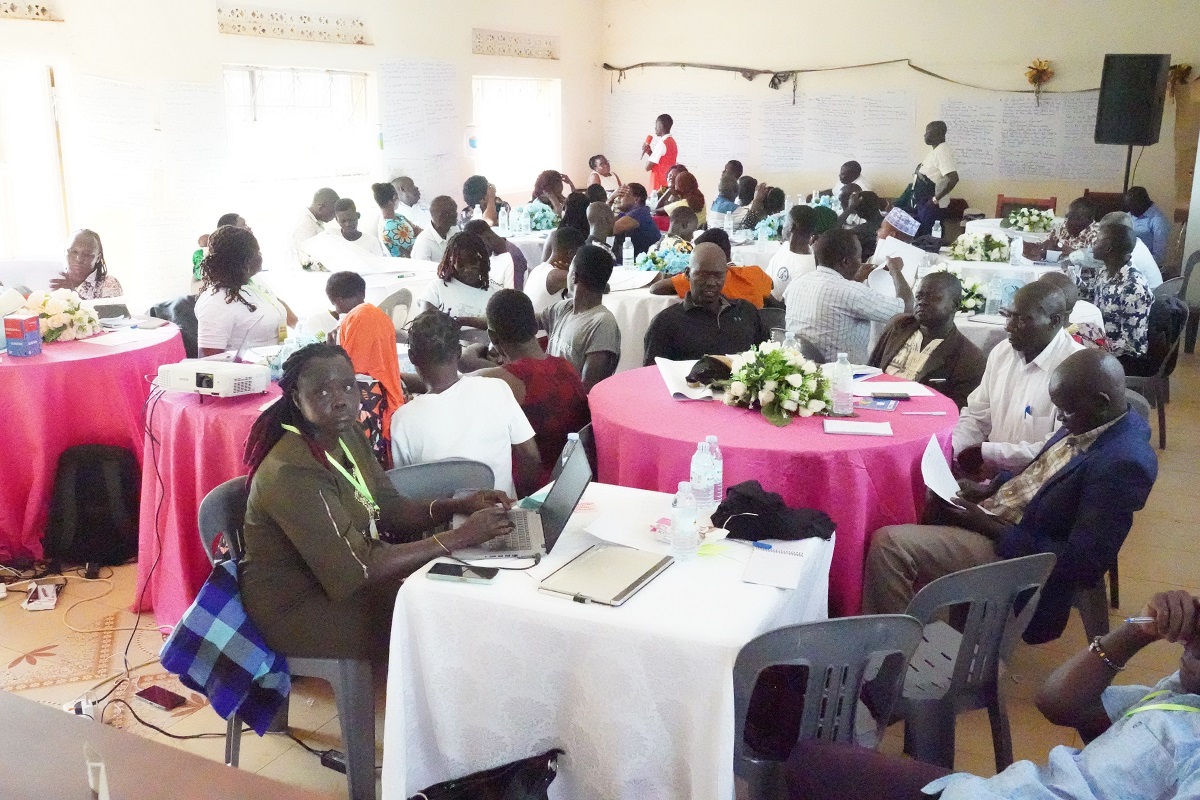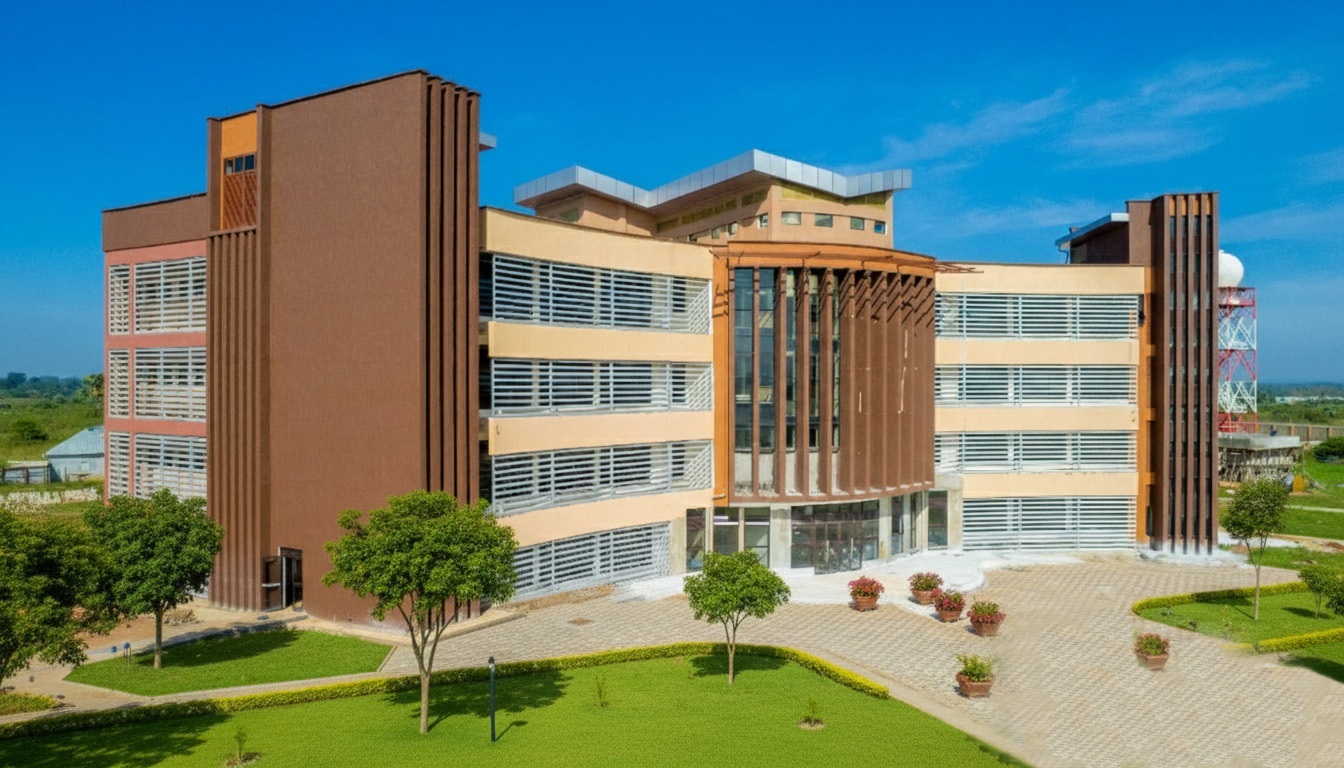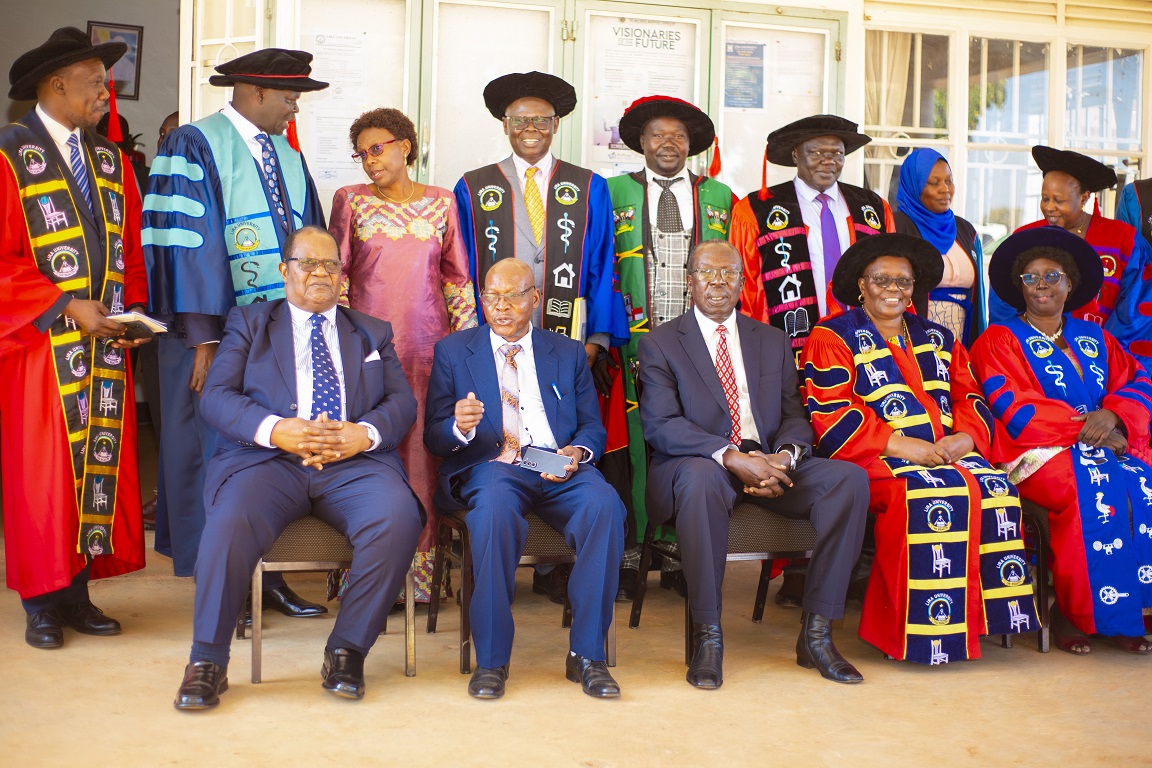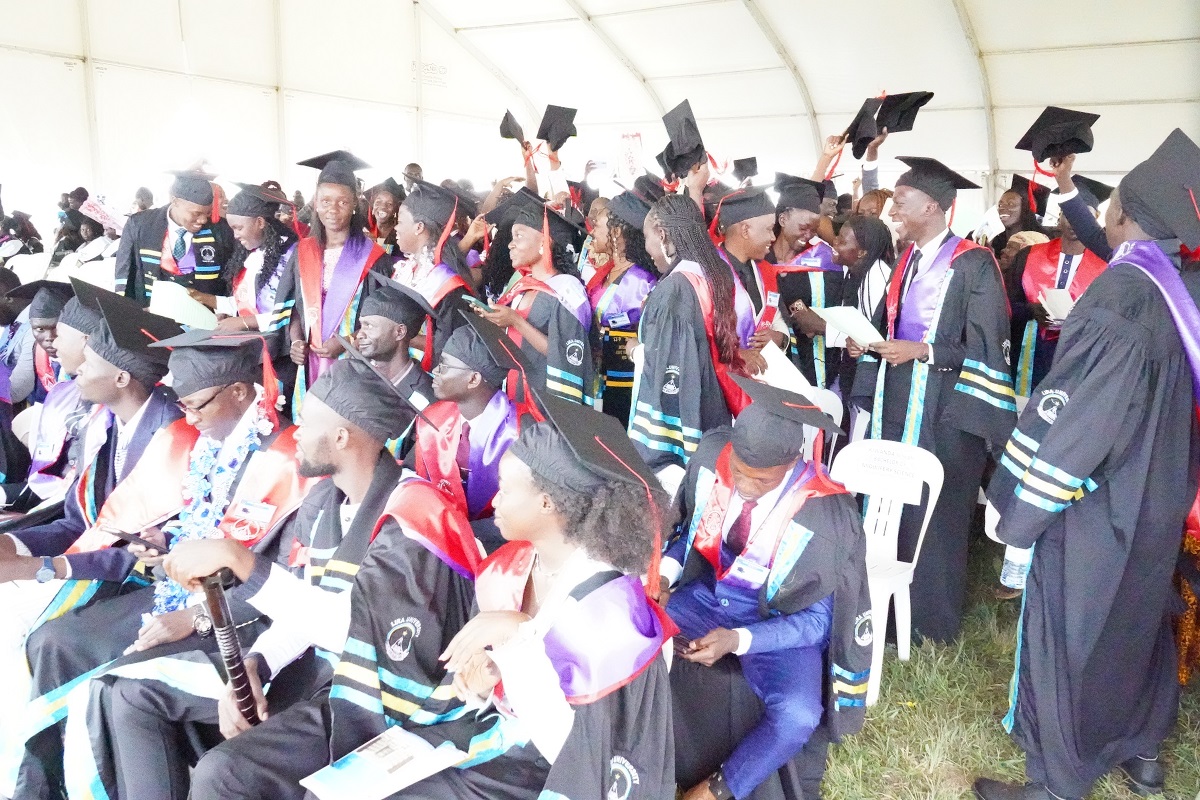By Patrick Opio
Senior Communications Officer
Lira District Chairperson, Hon. RCM OKello Orik, has lauded Lira University with its partners for being transparent and accountable in the implementation of ‘Enhancing Integration of Adolescent Family Planning and Post-abortion Care in Northern Uganda: A Citizen Science, Gender-Transformative Approach (CAFFP-PAC) Project.
The project is sponsored by the Canada’s International Development Research Centre (IDRC) and other funding partners.
Okello Orik praised the management and staff of Lira University for being vibrant and proactive in prioritising research and innovations activities. He was addressing CAFFP-PAC inception meeting held at Margaritha Palace Hotel in Lira City on 1st April 2025.
“A world class university must consider research as a priority. As leaders in the region, we are happy with Lira University for championing research and innovations to produce new knowledge that helps our society,” Orik observed.
Canada’s International Development Research Centre (IDRC) and other partners funding the Adolescent Family Planning and Post-Abortion Care project in Lira District, Northern Uganda.
The project name is, “Enhancing Integration of Adolescent Family Planning and Post-abortion Care in Northern Uganda: A Citizen Science, Gender-Transformative Approach (CAFFP-PAC).”
While opening the meeting, Lira University Vice Chancellor, Prof. Jasper Ogwal Okeng said that early pregnancies often disrupt education and limit future opportunities, perpetuating cycles of poverty and inequality. “The University Team considers research and innovations as core activities, supporting the community to get answers and solutions to their health and other problems,” Prof. Ogwal Okeng explains.
Lira City Mayor, Hon. Sam Atul commended Lira University for involving local leaders and technical staff in the fight against early pregnancies and post abortion management issues. “We are happy with the brains behind this research for considering local partners for their political and technical support in the project,” Atul said.
Associate Professor Bernard Omech, the Principal Investigator, noted that the purpose of Inception meeting was to provide a clear understanding of the project’s objectives, scope, and key deliverables to all stakeholders involved and allow stakeholders identify potential risks, challenges, and gaps, allowing for early mitigation strategies.
“We also target fostering relationships and coordination among stakeholders, such as government bodies, NGOs, healthcare providers, and community leaders,” Dr Omech reveals.
He explained that the project aims at enhancing adolescent sexual and reproductive health (SRH) in Northern Uganda, with a focus on Lira District
Adolescence (10-19), Prof. Omech, says is a risky period because of the profound physical, psychological, and social changes that occur during this stage of development.
He adds, “the project Integrates Comprehensive Adolescent-Friendly Family Planning and Post-Abortion Care (CAFFP-PAC) into public primary healthcare facilities and evidence based, aligned with Ministry of Health (MoH) service standards and guidelines for adolescent SRH care.”
Prof. Omech notes that Implementation Science Approach would be used as Citizen-Science Model involving adolescents, parents/caregivers, healthcare providers, and community leaders in co-designing interventions.
He emphasised the need for bottom-up approach in promoting co-ownership in the CAFFP-PAC implementation including gender-transformative style.
He decried the harmful gender norms like girl child married off at early age. He noted that the project also targets supporting both men and women in redefining their roles in a way that promotes fairness and shared decision-making.
Key components of CAFFP-PAC include providing age-appropriate education on sexual health, reproductive rights, and family planning options, establishing youth-friendly clinics offering confidential, non-judgmental services tailored to adolescents and conducting sensitization campaigns to reduce stigma and improve knowledge of available services.
Others are safe, compassionate post-abortion care including counseling, medical support, and family planning options, access to trained counselors to support informed decision-making on sexual and reproductive health and educating parents on adolescent reproductive health to encourage open communication, strengthening referral systems between community health workers, clinics, and hospitals.
Dr Omech noted that despite policies like the National Adolescent Health Strategy, access to family planning and post-abortion care remains poor and fragmented and teenage pregnancy remains above the national average in Lira District, standing at 26.7%, only 20% of adolescents accessed family planning (FP) services in 2023, with limited availability and accessibility of adolescent-friendly sexual and reproductive health (SRH) services.
According to Dr Omech, unsafe abortion rate is at 39.8%, with only 42% of women receiving post-abortion care, contributing significantly to maternal mortality, with adolescents disproportionately affected.
The overall objective of the Project is to improve access to, and utilization of SRH services by female and male adolescents and other underserved population groups in Lira, Northern Uganda.
Dr. Maxson Kenneth Anyolitho, Co-Investigator and Project Coordinator, reveals that Access to Sexual Reproductive Health services allows individuals to choose whether, when and with whom to engage in sexual activity, when to have children and to access the information and means to make those choices.
Dr Anyolitho notes that SRHR- right of individuals to make decisions about sexual activity and reproduction free from discrimination, coercion, violence & to achieve the highest attainable standard of sexual health.
According to Dr Anyolitho, nationally, at least 1 in 5 women begin sexual activity before the age of 15 years, unprotected sexual intercourse, coerced sexual activity and 40% of unintended pregnancies.
He added that 27% teenage pregnancies, 20% of infant deaths and 28% of maternal deaths, with limited access to SRHR information and services, unsafe abortions, child marriage, HIV infections, and GBV.
Lira University, GLOFORD, Reproductive Health Uganda, University of Calgary and Lira District Local Government are CAFFP-PAC Consortium Partners.

